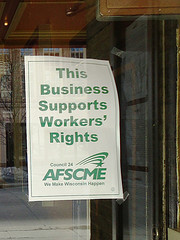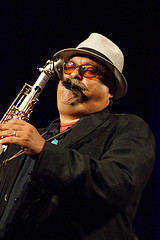May 13, 2011 Comments Off on Unions, Business and the State
Unions, Business and the State
 I listened to this episode of the Diane Rehm Show last night and became increasingly depressed about China’s human rights record.
I listened to this episode of the Diane Rehm Show last night and became increasingly depressed about China’s human rights record.
While already long aware of China’s ongoing crackdown on Falun Gong adherents and artists like Ai Weiwei (where is he?), and, frankly, not having very high hopes for the defense of human or civil rights in authoritarian states in any case, I was nevertheless especially disheartened to learn of the supposedly communist state’s brutality directed at labor activists. As one of the guests pointed out, workers do not have the right to strike or even organize independent unions in China and any attempt to organize such are dealt with harshly (with punitive measures that include torture, she insisted).
Communism’s seemingly paradoxical opposition to organized labor, which resulted in the fall of a communist regime in the case of Poland’s Solidarity movement twenty or so years ago, highlights more than anything else that unions are not first and foremost about worker’s rights but, rather, about addressing an imbalance of power.
Let’s face it, when you work for someone, they have power over you. When many work for a few, the few have power over the many. When the many organize for the purposes of collective bargaining, for example, they are attempting to establish a balance of power; the business owner can fire one person without experiencing a business consequence—it’s harder to escape the consequences if you fire everyone (though owner’s are often willing to accept such consequences when they play the “lock out” card).
In other words, organizing a union can be a logical, defensive move on the part of individuals who have little power as individuals but, at times, significant power as a group.
